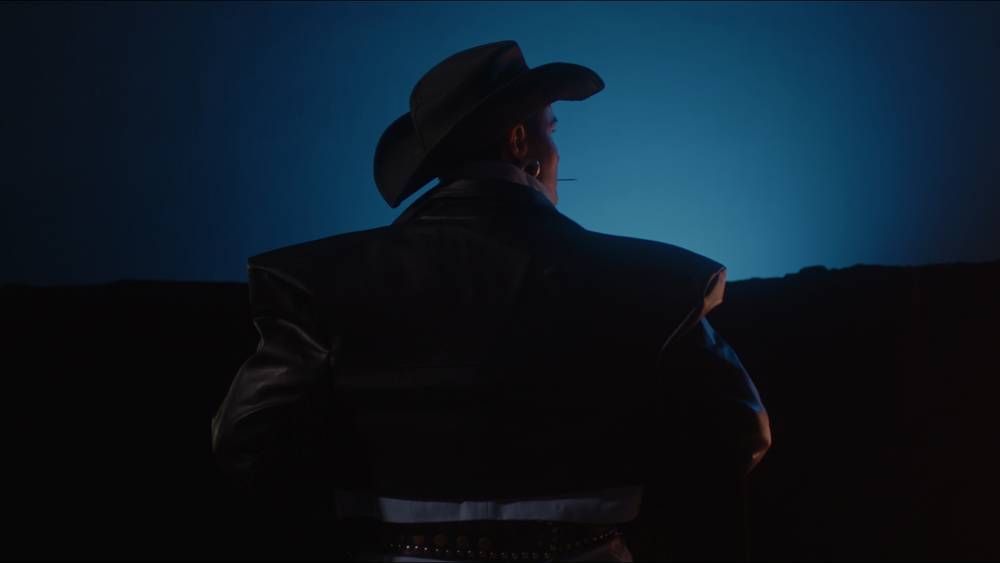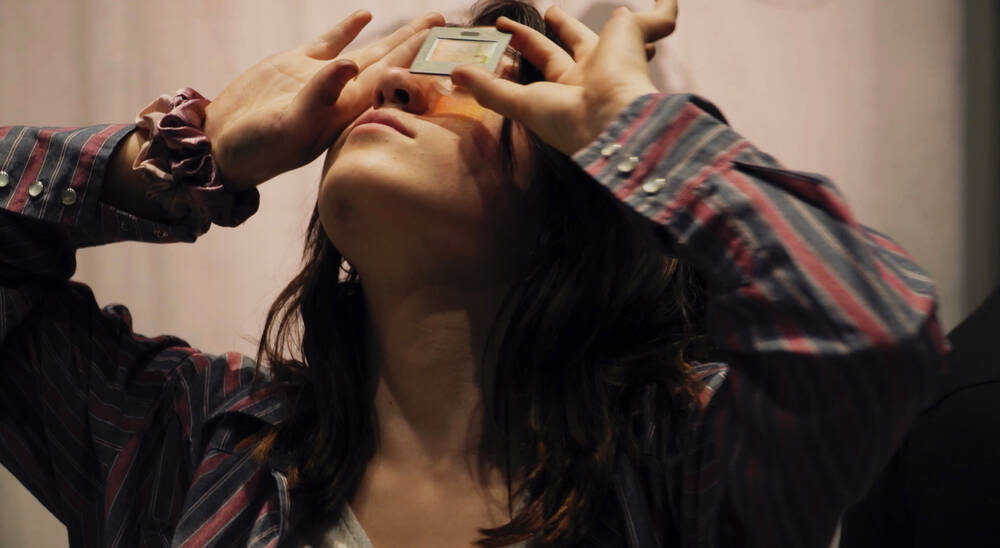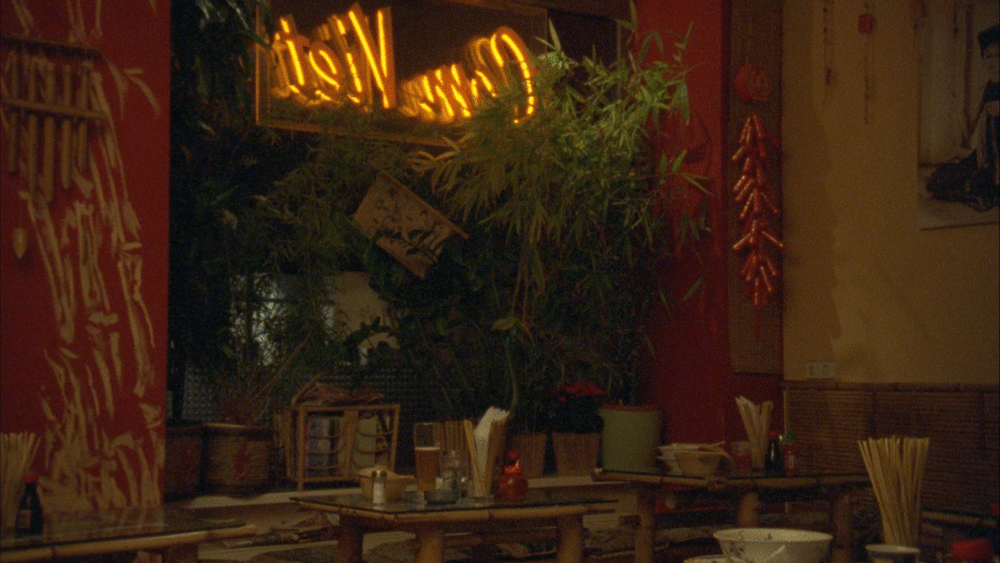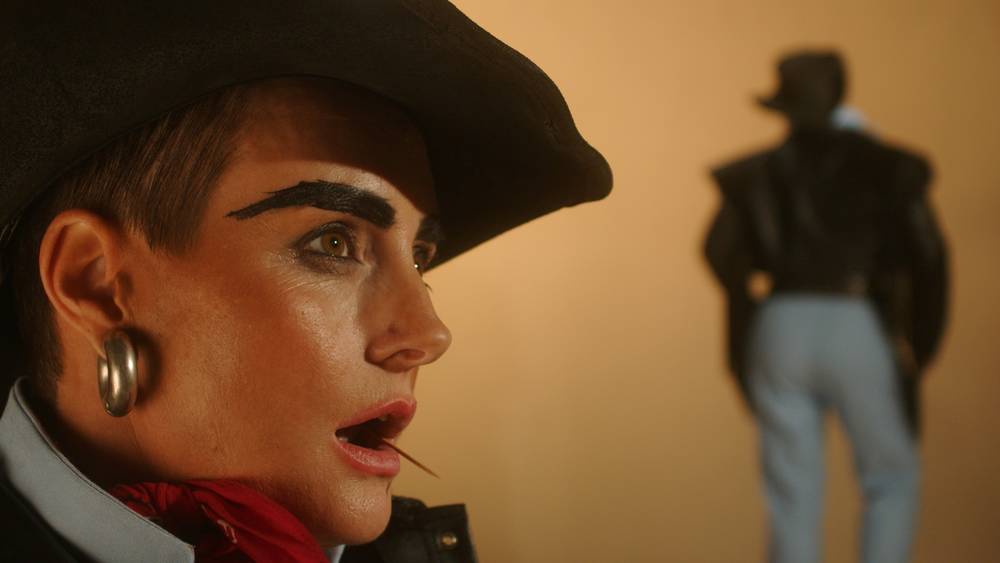A Sicilian myth in a contemporary guise
What if women can resolve and heal dichotomies? In the coming DOUBLE FEATURE, Elisa Giardina Papa takes the Sicilian myth of the “donne di fora” and...

The Double Feature sees itself as a platform for different currents and forms of expression in film and video art production. For more than eight years, the SCHIRN has invited national and international film and video artists to present a work from their own oeuvre, followed by a film of their choice. Films and video works by over 60 artists have already been shown at the SCHIRN. The videos and conversations with the artists involved so far are available on the SCHIRN's YouTube channel under the title "Video Art." The SCHIRN MAGAZINE also regularly provides discursive contributions with an editorial focus on video art to the Double Feature series
Every last Wednesday of the month at 7.30 pm at the SCHIRN SPACE. Admission is free.
In his mostly large-scale video installations, Johannes Büttner explores speculative and scientifically based socio-economic themes in the present, past and future. To outline future scenarios, he draws on various forms of hacking, DIY and the cyber punk genre. His work often involves people who operate outside the art world. The resulting narratives oscillate between reality and fiction. At the SCHIRN, Büttner presents the film The Factory (2020, 16:45 min.) and his latest work Terra Nullius (2024, 24:44 min.). The Factory deals with the so-called gig economy, in which self-employed temporary entrepreneurs are increasingly replacing permanent employees. For the film, the artist collaborates with these digital workers from around the world to create a science fiction narrative that revolves around the question of how the gig working class can regain power. In this context, in which the supply and demand of labor is mediated by a digital platform, Büttner explores the possibility of transforming the labor force. In Terra Nullius, Büttner documents his journey to the Free Republic of Liberland and portrays the right-wing libertarian settlers of the sham state, which is located on an uninhabited piece of no man's land between Croatia and Serbia. The goal of the protagonists is to establish an anarcho-capitalist state in which the free market regulates social issues and public institutions are in private hands. Liberland is located in the middle of Europe in an area for which ownership claims have not been resolved as a result of the Yugoslavian war.

Elisa Giardina Papa is an Italian artist whose work explores gender, sexuality and labor in the context of neoliberal capitalism and the frontiers of the global South. Her current work documents how past and present forms of capitalism have progressively exhausted all capacities for work and life - including sleep, affect and emotion - and focuses instead on everything in our lives that cannot be grasped, translated or calculated. Her film “U Scantu: A Disorderly Tale” (2022, 13'06'') shows a reinterpretation of the Sicilian myth of the donne di fora (“women from outside and out of themselves”). These women were described as both magical and criminal and are said to have combined both the feminine and the masculine, the human and the animal, the benevolent and the vengeful. Accompanied by ceramic sculptures of related fantastical imagery, “U Scantu: A Disorderly Tale” utilizes the magical, ritualistic and disorderly as forces that create a notion beyond predetermined categories of humanity, chronological time and mythological femininity.

Alicja Wysocka, born in Poland and a graduate of the Städelschule School of Fine Arts in the class of Haegue Yang in Frankfurt am Main, Germany, focuses her practice on documenting and creating alternative economic models, commons, and communal forms of living. Wysocka produces site-specific video installations, objects, and situations, exploring crafts, rituals, and collaborative forms that potentially function as collective therapeutic experiences. In "Untitled (Nothing Happens)" (2023, 30 minutes), Alicja Wysocka poses a question to a chatbot: "Are you bored?" To which the bot replies: "As an AI language model, I don't experience boredom as humans do." Her new film explores the potential of boredom. Retired female friends gather to play hand games in a spinning teacup. The film's structure focuses on the group's dynamics, confined to a small space over a long, empty time. The teacup originates from Societe Ceramique, a ceramics company founded in Maastricht from 1863 to 1958, whose production operations were associated with the exploitation of local populations. The film draws on sentimental memories of amusement park rides and invokes the temporalities of productivity and work that govern our lives.

In her video works, Johanna Billing explores the factors influencing interpersonal actions and decisions, and in particular, the role that unpredictable moments play. The starting point of Billing's works is often a dialogue in which the people involved explore their role within a group through performance and improvisation. At the SCHIRN, the artist presents her film "Each Moment Presents What Happens" (2022, 27 minutes), which re-applies the experimental practices of the American composer and artist John Cage (1912–1992) with a group of students. On the occasion of the opening of the new center for the performing arts at the Bristol Grammar School, Billing takes up John Cage's performance "Untitled Event (Theater Piece No. 19)" to develop workshops together with the students. They experiment with a variety of found objects from their immediate surroundings. The non-hierarchical teaching method puts the past and present in relation and opens up a multiperspective view. The idea that the experiences of a moment are never the same is illustrated by Billing through the use of a 360-degree camera instead of an audience. By inserting scenes from the school routine, she also addresses the complex way in which situations in everyday life are choreographed, actions in relation to others are constantly recalibrated, and our knowledge systems are organized.
"Each Moment Presents What Happens" (2022): Commissioned by Bristol Grammar School to commemorate the opening of the 1532 Performing Arts Centre. Produced by Josephine Lanyon in association with Bristol City Council. Supported by the University of the West of England.

The American artist Anita Di Bianco (born 1970 in New York) works with film, video and print media. Her short films pursue strategies of restaging works by well-known writers such as Winfried Georg Sebald or Gertrude Stein, thus destabilizing the idea of an untouchable authorship. The choice of text is analytical, the images purist: Di Bianco's remakes make hidden structures visible and open up new ways of reading. The work "Com Viet" restages an interview with the French writer Marguerite Yourcenar from 1980. Yourcenar, who had tracked down and experimentally tested all conceivable forms of unconventional love in literature, spent her life researching alternatives to the "great staged emotion", which she considered to be a characteristic of French culture. The relevant passages from the interview are recorded in voice-over against the backdrop of a Vietnamese restaurant and partly recited monologically by an actor in the rooms of the Berlin Münzsalon.

Melanie Jame Wolf is a visual artist and choreographer. In her work she deals with themes such as power, capital and show business. At the Schirn, she presents her most recent video work The Creep (2023, 15 min.), which she created in the context of a multimedia installation. As a continuation of her ongoing "Creep Studies", the artist analyzes the dynamics between violence, desire and performativity in this work. In her work, she concentrates on specific performance techniques such as imitation, rehearsal or stand-up. In The Creep, a cowboy figure takes center stage. The choreographed actions of this protagonist are used to examine the multi-layered definitions and experiences of "creep" - a feeling, noun and verb. Visually, Wolf borrows from a hyper-stylized pop aesthetic. She also uses language and humor in her work as a means to question structural violence, power and everyday tensions.

The artists in an interview